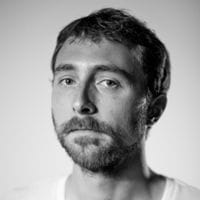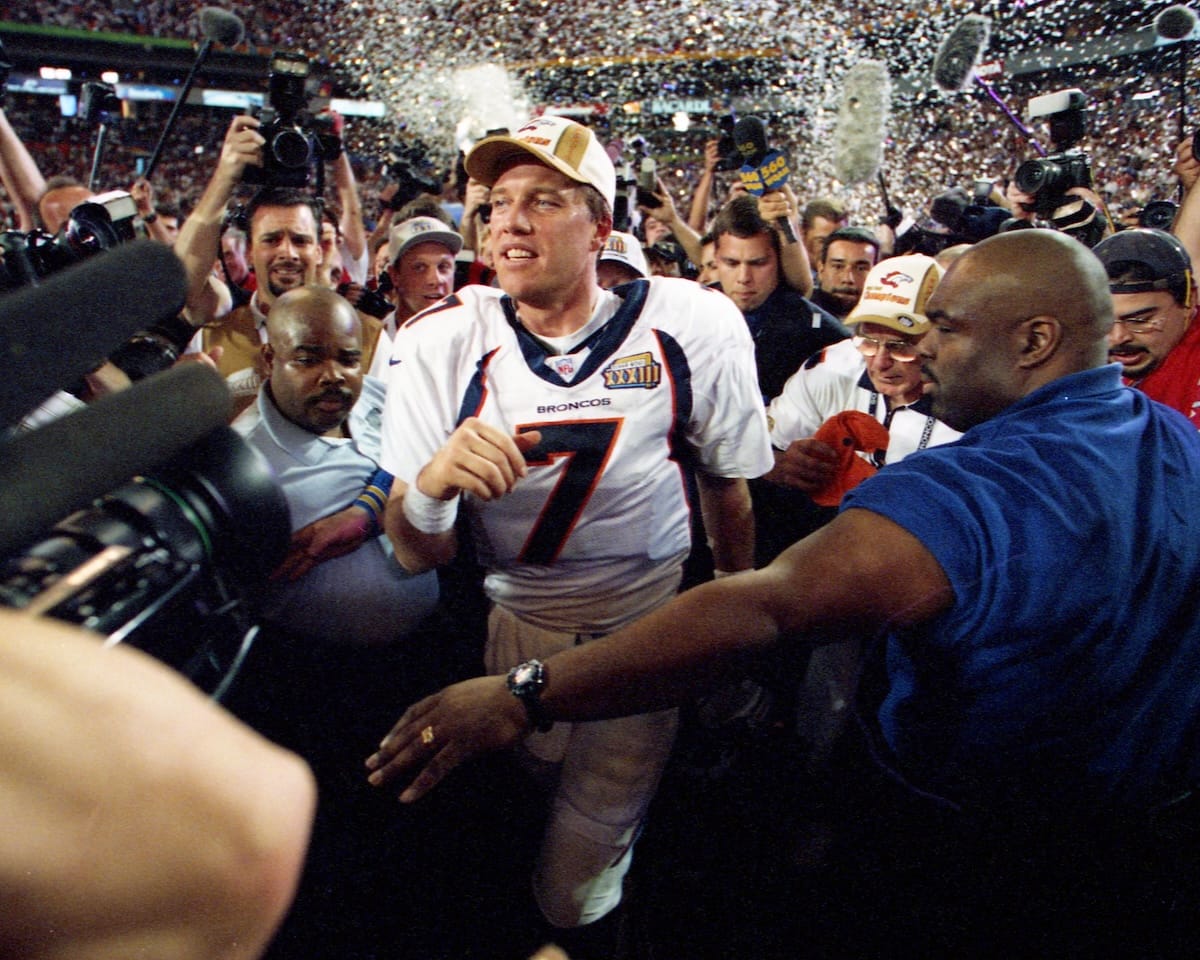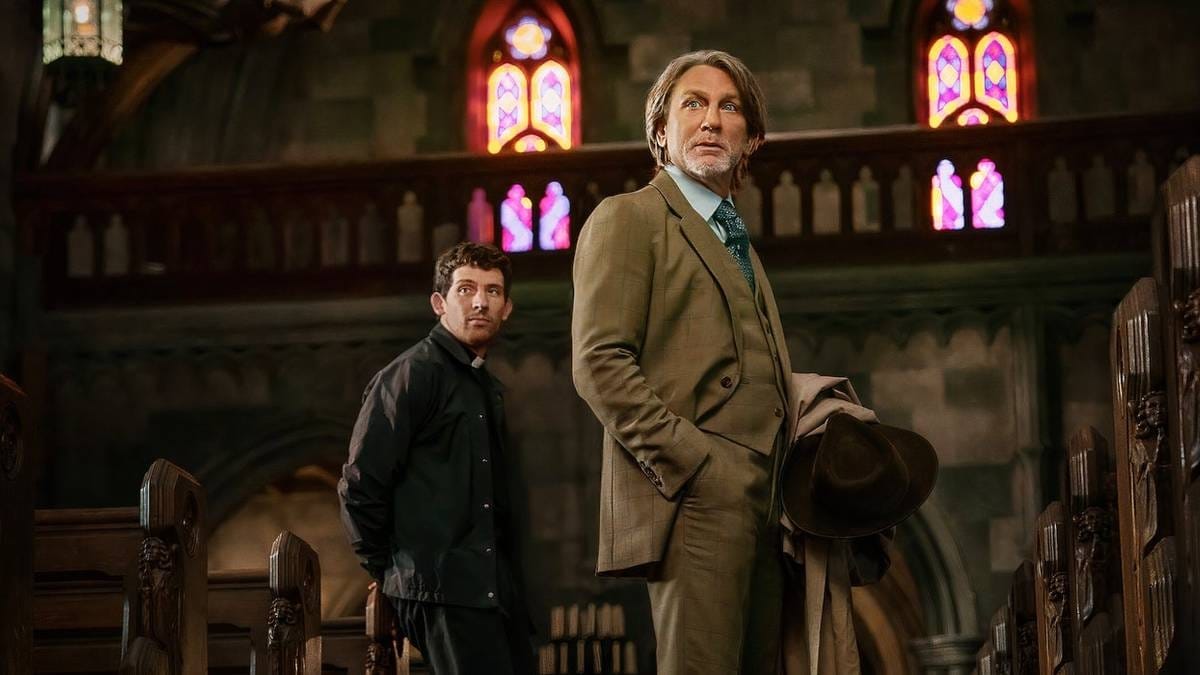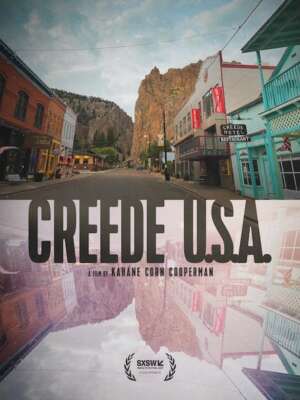From the new Knives Out film to Creative Conversations about the film industry, we get the inside scoop on the 2025 Denver Film Festival.
When I called Matt Campbell, artistic director of the Denver Film Festival — about two weeks before the 10-day event expected to draw 40,000 to 50,000 attendees —he was upbeat about where he and his team were at in the planning process.

Matthew Campbell
“I’m feeling great,” he said. “We have lots of things to do, so everyone is working hard, but tickets are being sold and it’s all coming together. We’re getting the films in. We’ve got a great lineup of guests and we’re still working on some more special announcements in that regard, so yeah, we are really excited about sharing this year’s festival with people.”
That steady confidence comes from a year spent piecing together the festival’s expansive program. Campbell says he begins his work at the Sundance Film Festival in January and spends the rest of the year travelling to festivals such as Berlin, Cannes, Toronto and many more.
“It a really year-round process,” he said. “Curating the festival is a two-part process: 1) we’re going out and scouting films in other festivals, and 2) watching the films that sales agents, distributors and filmmakers send us, as well as submissions we receive through FilmFreeway. In total, it’s just under 2,000 films, around 1,800, and I personally watch around 500 films a year.”
The result of all that curation lands Oct. 31–Nov. 9, when the 48th Denver Film Festival unspools 145 films (just under 90 features) plus shorts, conversations and late-night revelry. The festival spans 10 days and includes screenings at the Botanic Gardens, Ellie Caulkins Opera House, Holiday Theater and Sie FilmCenter.

The Denver Film Festival will present the world premiere of ‘Elway’ at this year’s event. | Photo: Allen Kee/AP
Gothic whodunits to documentaries about John Elway
The festival opens on Halloween with Wake Up Dead Man: A Knives Out Mystery at the Ellie Caulkins Opera House, followed by an opening night party at the Kirk of Highland.
“We’re especially excited for Wake Up Dead Man to be opening the festival,” Campbell said. “It’s a spooky whodunit set in an old Gothic church, and our opening night party is at the Kirk of Highland, which is an old Gothic church in the Highlands, so it’s a perfect pairing for a fun Halloween costume party. And, of course, the film has some spooky twists and turns thrown in there that we wouldn’t want to spoil, so I think it’s going to be a fantastic way to kick things off.”
From there, the film calendar is filled with everything from Academy Award contenders like the George Clooney-led Jay Kelly on Nov. 1 and Chloé Zhao’s Hamnet on Nov. 7 to documentaries about local subjects like Creede U.S.A. on Nov. 4-5 and the world premiere of Elway, the Netflix/Omaha Productions documentary about the Broncos legend and wild, out-of-the-box stuff like Annapurna Sriram’s Fucktoys on Nov. 1 and 7.
“This is a unique opportunity to be able to see something that you wouldn’t normally see,” Campbell said. “Hear the voices of filmmakers from different backgrounds and walk a mile in their shoes. That’s what I feel that our film festival is great at: providing space for people to experience a culture or a person or a viewpoint that they weren’t exposed to before, and hopefully that is a mind-altering experience.”

The new ‘Knives Out’ film will also be shown at the festival. | Photo
Courtesy of John Wilson/Netflix
How to do the festival like a pro
With so many choices, Campbell encourages audiences to take chances. “Do something that you have no idea what it’s about,” he says. “The beauty of a film festival is that you can just say, ‘Okay, this works in my schedule. I’m just going to see it on a whim.’ A lot of times those are the best films.”
For him, the “hidden gems” are what make DFF special. Among his personal favorites this year are the daring feminist musical, The Testament of Ann Lee, playing on Nov. 8 at the Holiday Theater, and an experimental Vietnamese documentary shot on Super 8 and 16mm, Hair, Paper, Water, playing Nov. 8 at the Sie. “That’s one of those films you’re not going to be able to see outside of the festival context,” he notes.
He also points audiences toward the social side: the lounge at the Sie, post-screening conversations and the late-night parties. “There’s a certain energy to film festivals that’s quite different from just going to your local multiplex,” Campbell says. “You get to talk to filmmakers, meet fellow cinephiles, and really make it a communal experience.”
The industry-facing side keeps growing too: Campbell’s team has been “making an effort to get more into the podcasting space,” and this year The Ankler’s awards editor Katey Rich will record a live Prestige Junkie podcast with director Gus Van Sant following the screening of his new film, Dead Man’s Wire, on Nov. 4 at the Holiday Theater.
Filmmakers and the film-curious can also drop into the festival’s “Creative Conversations” at the Tattered Cover (2526 E. Colfax Ave.) next to the Sie. These events will feature discussions with filmmakers and experts about the most pressing issues facing the industry today, including:
- From Policy to Production: The Future of Film Incentives, on Nov. 1, at 10 a.m.
- Monsters, Myths & Mountain Tales – Genre Filmmaking in Colorado, on Nov. 2, at 12 p.m.
- Coffee Talk with David Ansen, on Nov. 7, at 11 a.m.
- Screenwriting Workshop with Jonathan A. Abrams, on Nov. 7, at 1 p.m.
- Six Steps to Build Your Own Distribution Playbook, on Nov. 8, at 10 a.m.
Campbell says these events are perfect for people “looking to have a more industry-focused conversation. The great part about a festival is that it really does provide space for community engagement and to make friends, or to hang out with your friends and get to chat about films and art — it’s a special environment for that.”

‘Creede U.S.A’ is another film of likely interest to Colorado audiences.
Sundance on the horizon
As he prepares for this year’s festival, Campbell admits that the elephant in the Colorado film world this year has been the announcement that the Sundance Film Festival would relocate to Boulder in 2027. Though “how Sundance coming here will change the local festival landscape is a question we are getting asked a lot these days, first and foremost, we are excited about this new opportunity,” he said. “What we do and what Sundance does are two very different things.”
“Sundance is primarily an industry festival, where they are world-premiering films that are looking to be acquired,” Campbell continued. “Our purpose is to provide for the community, for the residents of Denver and the metro area all around us, an event that is accessible. That’s not necessarily true with a bunch of the other festivals. With that being said, I do think that Sundance coming here is going to be a great showcase and spotlight for Colorado at large and for our local filmmaking community. A high tide raises all ships.”
Campbell believes that Colorado can support both festivals. “We already have the Telluride Film Festival that takes place over Labor Day, and that is one of the top film festivals in the world,” he pointed out. “From our perspective, we are excited to see Sundance kick off the year with indie-focused world premieres, Telluride in the middle of the year with a lot of buzzy awards-type films and then we get to wrap up the year by cherry-picking the best of them all.”
Though no formal partnership between the two film festivals has been announced, Campbell says discussions are taking place.
“We’re definitely talking to them. Like a lot,” Campbell says. “There’s nothing that we can announce formally at this point, but I do think that there will be down the road. Sundance is making a very concerted effort to reach out to the local community and to the organizations that are already here to create those partnerships.”
Looking ahead
For now, though, the focus is on execution. Behind the scenes, the Denver Film team is juggling everything from testing every film on-site to booking hotels, flights and volunteer drivers for visiting filmmakers.
“It’s a constant puzzle,” Campbell says. “One piece affects all the others. It takes a lot of communication and coordination to ensure operations run smoothly during such a large event.”
As DFF approaches its 50th anniversary, he insists he’s bullish on the future of cinema. “Since COVID, our attendance has gone up. The access to films we can get has dramatically increased. People want to get out of the house. Streaming and algorithms are all well and good, but at a certain point, you want something curated and personal, and that’s what we’re able to provide, both in the festival context and year-round at the Sie FilmCenter.”
Improvements to the Sie and a capital campaign are already planned once the festival wraps. With stronger ties forming across the state — and potentially with Sundance — Campbell sees Denver Film as “uniquely positioned” for what’s next. But even as he looks ahead to the festival’s 50th anniversary and the shifting film landscape, he circles back to what matters most: the experience audiences will have over these ten days in Denver.
“A lot of these films, you’re not going to get another opportunity to see,” Campbell said. “Of course, we’re really excited about all the big splashy titles that will be available later on streaming that you can see before everyone else, but the real hidden gems of the festival are the ones that really make the Denver Film Festival what it is.”
A Colorado-based arts reporter originally from Mineola, Texas, who writes about the changing world of theater and culture, with a focus on the financial realities of art production, emerging forms and arts leadership. He’s the Managing Editor of Bucket List Community Cafe, a contributor to Denver Westword and Estes Valley Voice, resident storyteller for the Bonfils-Stanton Foundation and co-host of the OnStage Colorado Podcast. He holds an MBA and an MA in Theatre & Performance Studies from CU Boulder, and his reporting and reviews combine business and artistic expertise.



Leave A Comment